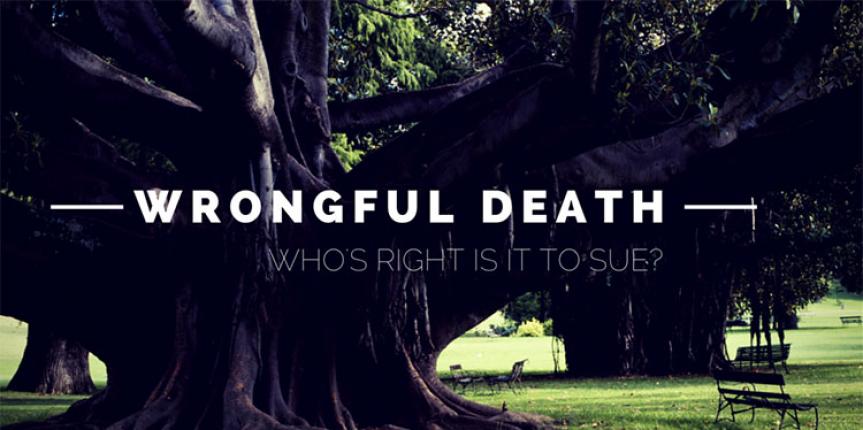Who Can File A Wrongful Death Lawsuit?
In 2010, Napa Valley police shot – and killed – a 60-year-old nurse by the name of Richard Poccia after he was reportedly in the midst of a mental health crisis that led him to drink heavily and make suicidal and threatening comments.
Believing that he was reaching for a weapon in his pocket upon police response, he was shot. Two years later in 2012, Poccia’s family filed a wrongful death lawsuit in federal court, arguing that police acted excessively and in a reckless manner in response to the incident. The city of Napa Valley recently settled the lawsuit with Poccia’s family, agreeing to pay them $700,000.
The situation listed above is just one example of when someone may file a wrongful death lawsuit, which seeks compensation such as lost wages, lost companionship and funeral expenses for the survivors due to the negligence of another person or party. Aside from death from police force, wrongful death lawsuits are also commonly brought against medical professionals, product manufacturers and other people and entities.
Who Can File?
Wrongful death lawsuits are relatively new in the sense that the “common laws” that the U.S. was founded upon did not allow people to sue for these matters. However, during the last 100 years or so, state and federal courts have created the right, to the point where every state in the union today has some sort of wrongful death policy.
But just who can file a wrongful death lawsuit? Specifically, a claim must the filed by a representative acting on behalf of the survivors. While the survivors are the parties in the matter of a wrongful death case that is seeking compensation, usually the person who files is the lawyer or representative that has been tasked with handling the deceased’s estate. The parties of interest vary on a state-by-state basis, but often consist of:
- Immediate family members, such as spouses and children.
- Partners and dependents.
- Distant family, such as siblings of the deceased.
- Financial sufferers, even when not related to the deceased.
- Special considerations, such as if a child dies in the womb (in certain states).
It’s important to note that before you act on filing a wrongful death lawsuit, you first should do your due diligence and check with your state to see what is allowed – and who is allowed to be cited as the parties of interest – based on that state’s specific law.
Who Can You Sue?
We covered some of this already, but it’s worth expanding on in this section. Here’s a look at some of the entities that can be cited with a wrongful death lawsuit and some examples of when the situation may arise:
- A driver or employer at fault in an auto accident. For instance, a drunk driver could be cited, as could a delivery company or truck driving company whose driver was involved in a fatal accident and deemed to be at-fault.
- Designer or builder of a damaged or faulty roadway.
- A government agency or entity who failed to notify someone of a potential hazard.
- A manufacturer, distributor or technician involved in a faulty vehicle part. An example of this would be the Toyota brake pedal situation that occurred in 2010 when a number of drivers of Toyota Camry vehicles were unable to stop due to a product default.
- Parties of fault. For example, a store, person or owner of a store that sold alcohol to a drunk driver or individual.
Types of Damages
There are three general categories of damages that survivors can sue for in a wrongful death situation – economic, non-economic and punitive. Here’s an overview of each:
- Economic: This includes the likes of medical and funeral expenses, loss of earnings and benefits, loss of inheritance, etc.
- Non-economic: This includes compensation for emotional anguish, pain and suffering, loss of protection and guidance, loss of love and companionship, etc.
- Punitive: Punitive damages consist of award compensation that punishes the defendant for inappropriate conduct. Check with your state before filing a wrongful death lawsuit to make sure punitive damages are able to be sought, as it varies state-by-state.
In addition to damages, wrongful death lawsuits in many states can also seek compensation for lawyer and attorney fees from the defendant.
As you can gather, wrongful death lawsuits can be very complicated, especially when you are weighing what is and isn't something that will qualify. That’s why only a lawyer or attorney can file a wrongful death lawsuit on behalf of the survivors or parties of interest.
For more information about wrongful death lawsuits, who can file them or who can be cited in them, contact our offices today. And if you believe that a family member or loved one died from negligence of another person, contact us today to see if your case would qualify.






